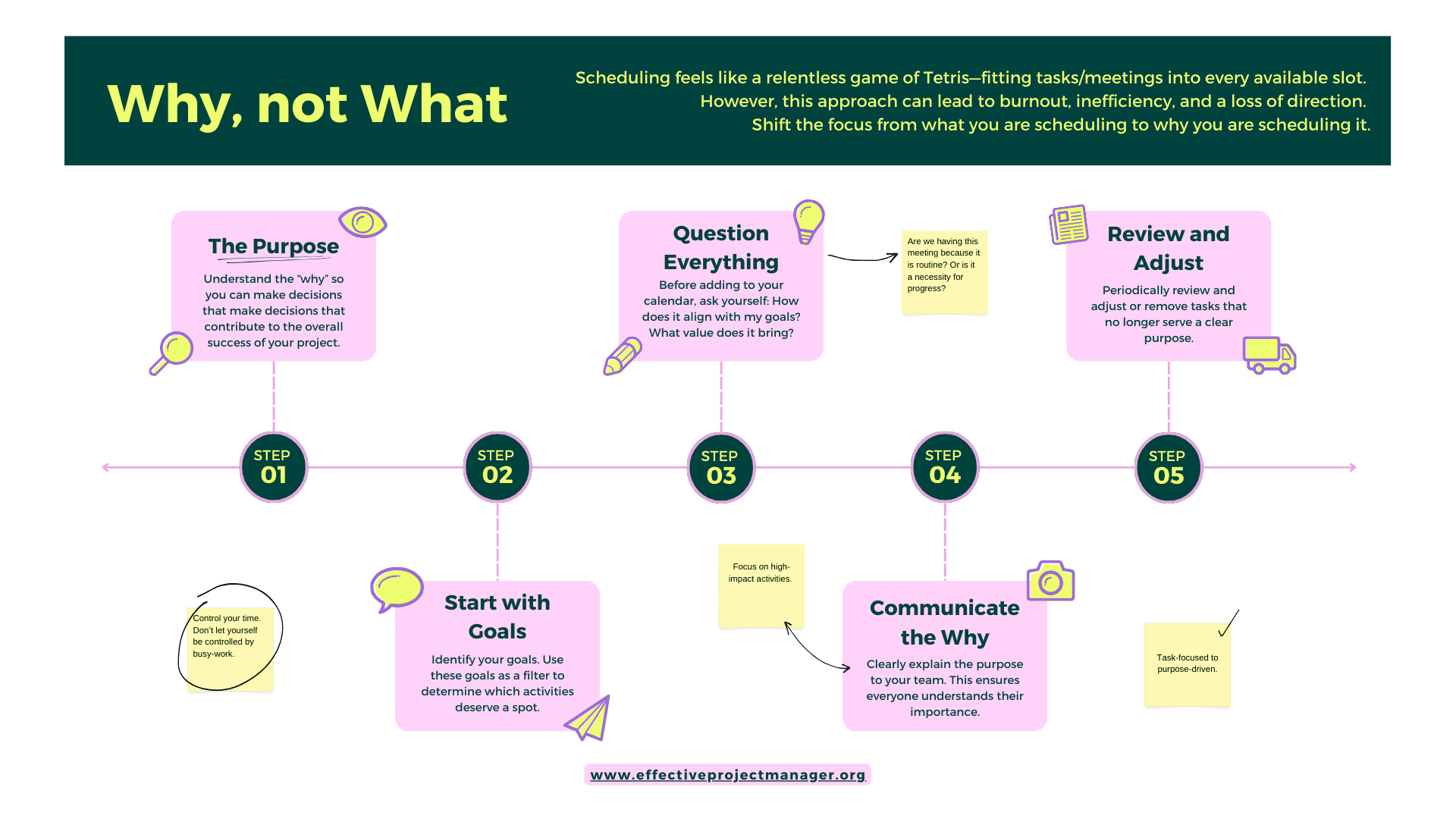Published in Advice

Olivia Lee
Software Engineering Project Manager
September 22, 2024
Why You Should Prioritise Purpose Over Tasks
Transform your project management by prioritizing purpose over tasks. Learn how shifting your focus from what to why in scheduling can boost productivity, reduce stress, and enhance team engagement. Discover strategies to create a purpose-driven schedule that aligns with your goals and leads to more meaningful outcomes.
In the rapidly-changing arena of project management, the act of scheduling can often feel like a relentless game of Tetris—fitting tasks and meetings into every available slot. However, this approach can lead to burnout, inefficiency, and a loss of direction. Shifting the focus from what you are scheduling to why you are scheduling it can transform the way you manage time and priorities, leading to more meaningful and productive outcomes.
The Importance of Purpose
Understanding the purpose behind each scheduled activity helps to align your actions with your broader goals. When you schedule a meeting, task, or even downtime with a clear why, it becomes easier to prioritize and make decisions that contribute to the overall success of your project. This is the importance of purpose.
Enhancing Productivity
By focusing on why a task is important, you can better assess its value and urgency. This prioritization ensures that your schedule is filled with high-impact activities rather than just busywork. For example, instead of scheduling a meeting because it’s a routine, consider if it genuinely contributes to project progress or team alignment. If not, it might be better to cancel or replace it with a more purposeful/productive activity.
Reducing Overwhelm
A purpose-driven schedule can help reduce feelings of overwhelm. When you understand the significance of each item on your calendar, you can more easily let go of tasks that don’t serve a critical function. This simplification leads to a more manageable and less stressful schedule, allowing you to focus on what truly matters.
Improving Engagement
When team members understand the purpose behind scheduled activities, their engagement and commitment increase. Communicating the why helps everyone see the bigger picture and understand how their efforts contribute to the project's success. This shared sense of purpose fosters a more motivated and cohesive team.

How to Implement a Purpose-Driven Schedule
1. Start with Goals: Identify your short-term and long-term goals. Use these goals as a filter to determine which activities deserve a spot on your schedule.
2. Question Every Task: Before adding an item to your calendar, ask yourself why it’s necessary. How does it align with your goals? What value does it bring?
3. Communicate the Why: When scheduling meetings or assigning tasks, clearly explain the purpose to your team. This transparency helps ensure everyone is on the same page and understands the importance of their contributions.
4. Regularly Review and Adjust: Periodically review your schedule to ensure it remains aligned with your goals. Be willing to adjust or remove tasks that no longer serve a clear purpose.
Conclusion
Transitioning from a task-focused to a purpose-driven approach to scheduling can significantly enhance your productivity, reduce stress, and improve team engagement. By consistently asking why you are scheduling something, you ensure that every minute spent contributes meaningfully to your goals, leading to more effective and fulfilling project management.


